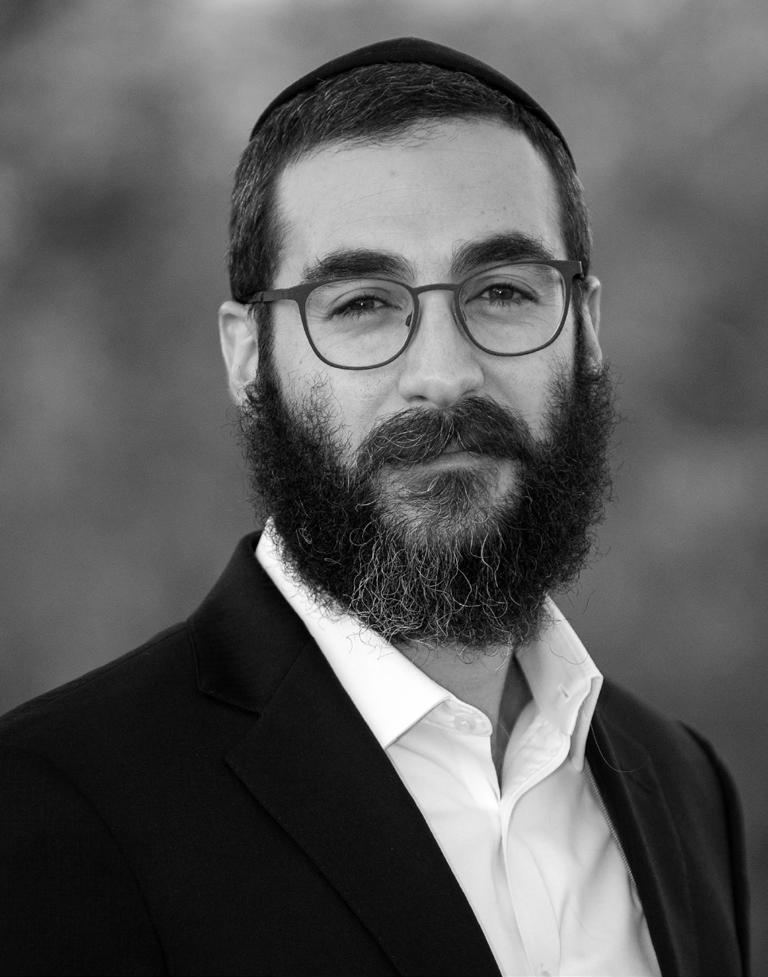
3 minute read
Five marriage insights from Aaron the High Priest
By Rabbi Yehuda Ceitlin
EDITOR
Rabbi Yehuda Ceitlin
COPY EDITOR
Suzanne Cummins
CONTRIBUTING WRITERS
Seymour Brody, Feigie Ceitlin, Libby Herz, Sruly Meyer, Menachem Posner, Mordechai Schmutter, Rochel Spangenthal, Benjamin Weiss, Shlomo Yaffe
COVER PHOTO
David Evans / Unsplash
SPECIAL THANKS Chabad.org
EDITORIAL INQUIRIES OR ADVERTISING
Phone: 520-881-7956
Email: info@ChabadTucson.com
Keeping Jewish is published in print periodically by Chabad Tucson and is distributed free in Tucson and around Southern Arizona
Chabad Tucson does not endorse the people, establishments, products or services reported about or advertised in Keeping Jewish unless specifically noted. The acceptance of advertising in Keeping Jewish does not constitute a recommendation, approval, or other representation of the quality of products or services, or the credibility of any claims made by advertisers, including, but not limited to, the kashrus of advertised food products. The use of any products or services advertised in Keeping Jewish is solely at the user’s risk and Chabad Tucson accepts no responsibility or liability in connection therewith.
Note: “G-d” and “L-rd” are written with a hyphen instead of an “o .”This is one way we accord reverence to the sacred divine name. This also reminds us that, even as we seek G-d, He transcends any human effort to describe His reality.
The yahrtzeit (anniversary of passing) of Aaron, the High Priest, is observed on the second of Av. Some two weeks later, we celebrate the 15th of Av, the Jewish Festival of Love.
And it’s no coincidence.
Aaron, the brother of Moses, was the quintessential example of a person who sought peace and expressed love in an unconditional way. From infancy, he showed a special sense of caring for others. When the speech-impaired Moses was tasked with confronting Pharaoh, it was Aaron who served as interpreter, selflessly playing second fiddle to his younger brother. And as High Priest, he strove to promote and pursue the cause of peace.
When he passed away, the entire nation mourned him, for he had brought them together as a nation of lovingkindness. So yes, it’s no coincidence that the day young Jewish singles would search for their soulmates occurs so soon after his yahrtzeit.
Every marriage requires effort, wisdom, and insight to succeed, and Aaron’s exemplary character, as illuminated by the teachings of the Rebbe, can provide us with useful insights on what it takes to build a solid and enduring marriage:
1. There should be love. Aaron was known for his boundless and unconditional love for people. At the core of any successful marriage is unconditional love and its power to overcome challenges together. Yes, you may often disagree with your spouse, but you should never stop loving them.
2. There should be a relationship. Aaron sought to build connections. Beyond the initial sparks of love, a nurturing, developing relationship is needed to support each other through life’s triumphs and tribulations. As you live together, you grow together, and you grow to understand each other’s unique needs. A relationship is built over time, and it creates the steadiness and reliability that can weather the good times and the tough times.
3. There should be a partnership. Aaron was tasked with kindling the Menorah, causing the flame to rise forth from the spun cotton wicks and the pure, cold-pressed olive oil in the golden branches of the Menorah. The candle and wick work in unison to create a glowing flame — and without both, the flame would soon sputter and die or never catch fire at all. So too, the husband and wife contribute their unique qualities and fulfill their respective roles, and without their partnership, neither is even half as effective as they can be as a team.
4. There should be a support system. All of us — even those who are not priests — are encouraged to “be of the disciples of Aaron” (Ethics of the Fathers 1:12). Yes, the responsibilities of the priesthood belong to the priests — the sons of Aaron — but the rest of us create a support structure as the students of Aaron, empowering them to succeed. And as the students of Aaron, we, too, are enjoined to “love peace and pursue peace” as Aaron himself did. While the primary responsibility of building a successful marriage lies with the couple, the people around them can — and should — offer guidance, encouragement, and a listening ear.
5. There should be faith.
When G-d taught the Jewish People commandments (mitzvot), He did so through Moses. But when G-d taught mitzvot that applied specifically to the priests, He often did so by way of Aaron, the High Priest, whose shining example of steadfast faith and service of G-d was emulated by his descendants.
A couple can seek wisdom from their faith, draw strength from their spiritual practices, and embrace the values and principles that resonate with their hearts.
Let Aaron’s profound insights guide you in building a marriage that thrives on love, connection, partnership, support and faith.
- Rabbi Yehuda Ceitlin is the Outreach Director of Chabad Tucson











